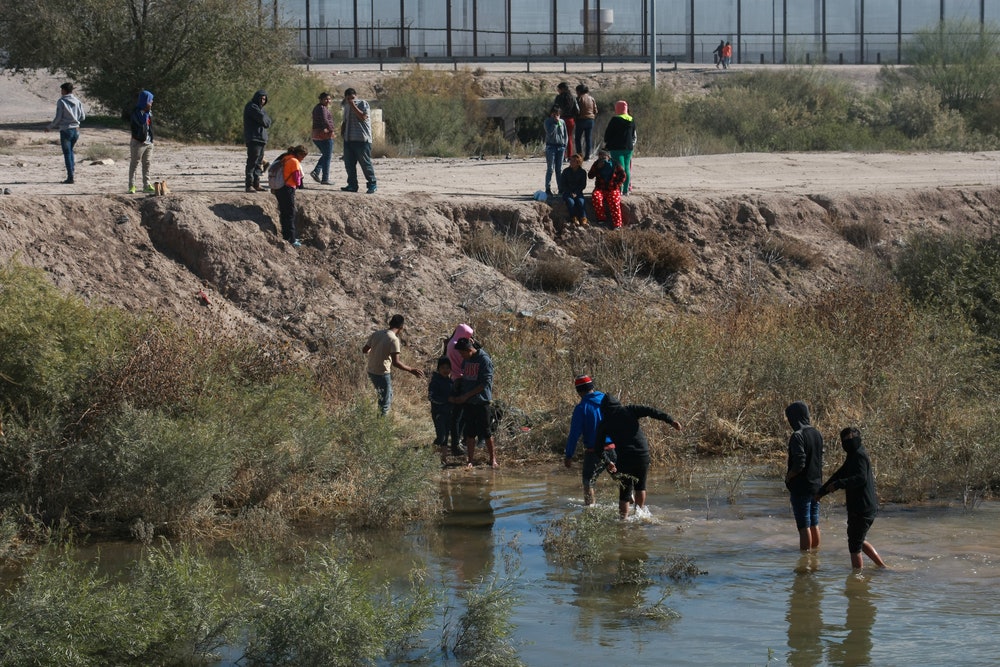Putting up walls and pulling back from the global economy is unlikely to address the underlying concern. After all, no country has ever become or remained wealthy in isolation from the global economy – on the contrary, all countries that wall themselves off are poor, weak and oppressive. The U.S. approach to globalization has been fundamentally different: we have never transferred one iota of our national sovereignty to any supra-national body.
Matthew Rooney, director of the Bush Institute’s economic growth initiative, answered these four questions about the impact on global trade, the U.S. economy, and lessons for North America.
How do you see this vote in terms of growing protectionism and pushback against globalism?
The North Atlantic community was the first to globalize – in fact, we invented the concept – and it is true that globalization has caused profound changes in what gets produced where and by whom. Across Europe, these changes have produced rising popular anger about immigration as the European Union economy has stagnated and middle class voters have become increasingly anxious about their long-term prosperity. We have seen similar anxieties in the U.S., with similar calls for literal and figurative walls to protect American workers.
Putting up walls and pulling back from the global economy is unlikely to address the underlying concern. After all, no country has ever become or remained wealthy in isolation from the global economy – on the contrary, all countries that wall themselves off are poor, weak, and oppressive.
A better response to the dislocations of globalization would be sustained investment in infrastructure, including communications, and serious reforms in education and training systems that would give people confidence they have the tools they need to thrive in the global economy.
What implications does the Brexit vote have for the movement of goods and people across Europe?
Brexit will reshape the EU economy as investments and jobs shift to accommodate the UK’s exit. British companies that buy components from EU countries will see costs increase. They will need to move production accordingly.
The UK will want an orderly transition out of legal and regulatory arrangements that reach into every corner of the British economy. The EU may try to raise the cost and uncertainty of this transition in an effort to discourage other countries from following the UK out the door.
However, these consequences will be deceptively slow to materialize. The exit process defined in the EU treaties calls for a detailed negotiation that will take two years or more.
What implications does the vote have for trade between the U.S. and Britain as well as between the U.S. and Europe?
Trans-Atlantic trade in goods is generally not regulated by a formal agreement between the U.S. and the EU. Nonetheless, trade flows are likely to shift as the terms of the U.K.’s exit become clear and British products become more or less competitive compared to products that originated in the EU.
The picture is different for services. Air services are covered by the EU-US Open Skies Agreement, which opened London’s Heathrow airport to market competition. When the U.K. leaves the EU and is no longer a party to that agreement, Heathrow may not remain fully open, nor can U.K. airlines assume they will keep their access to U.S. airports.
Similarly, many financial services are regulated by EU agencies. Their agreements with U.S. agencies may no longer apply to British service providers after “Brexit.”
Another aspect is the painstaking agreements we have reached with the EU on sharing passenger data. As the U.K. makes it way to the exit, those agreements will need to be renegotiated.
This will create additional uncertainty during the transition. It also will raise the possibility of gaps in U.S.-EU-U.K. law enforcement cooperation that could reduce security.
And what about North America? Do you see the Brexit vote having any implications for the movement of goods and people across Canada, the U.S., and Mexico?
There will be immediate impacts due mainly to short-term currency movements. We are already seeing investors flee Sterling and the Euro for the safety of the U.S., which is bidding the dollar upward. This will tend to increase our imports, especially from Canada and Mexico, two of our largest trading partners.
However, because so much of Canada’s and Mexico’s exports are based on inputs from the U.S., the increase in U.S. imports also stimulates U.S. exports to Canada and Mexico. At the same time, the U.S. dollar will pull the Canadian dollar and the Mexican peso up with it. Over the medium term, we are likely to see an increase in imports from outside North America as firms work to control costs.
Much more important is what Brexit does not mean for North America. The fundamental thing that drove Britons to vote “leave” was the realization that membership in the EU meant they had transferred control of their borders to Brussels, along with control of their trade policy and parts of their foreign and internal security policies.
The U.S. approach to globalization has been fundamentally different: we have never transferred one iota of our national sovereignty to any supra-national body. Our trade agreements, including NAFTA, represent a series of bargains under which we agree to do certain things in exchange for actions our partners agree to take. Americans are, and have been since 1776, fully in control of our national destiny.



























